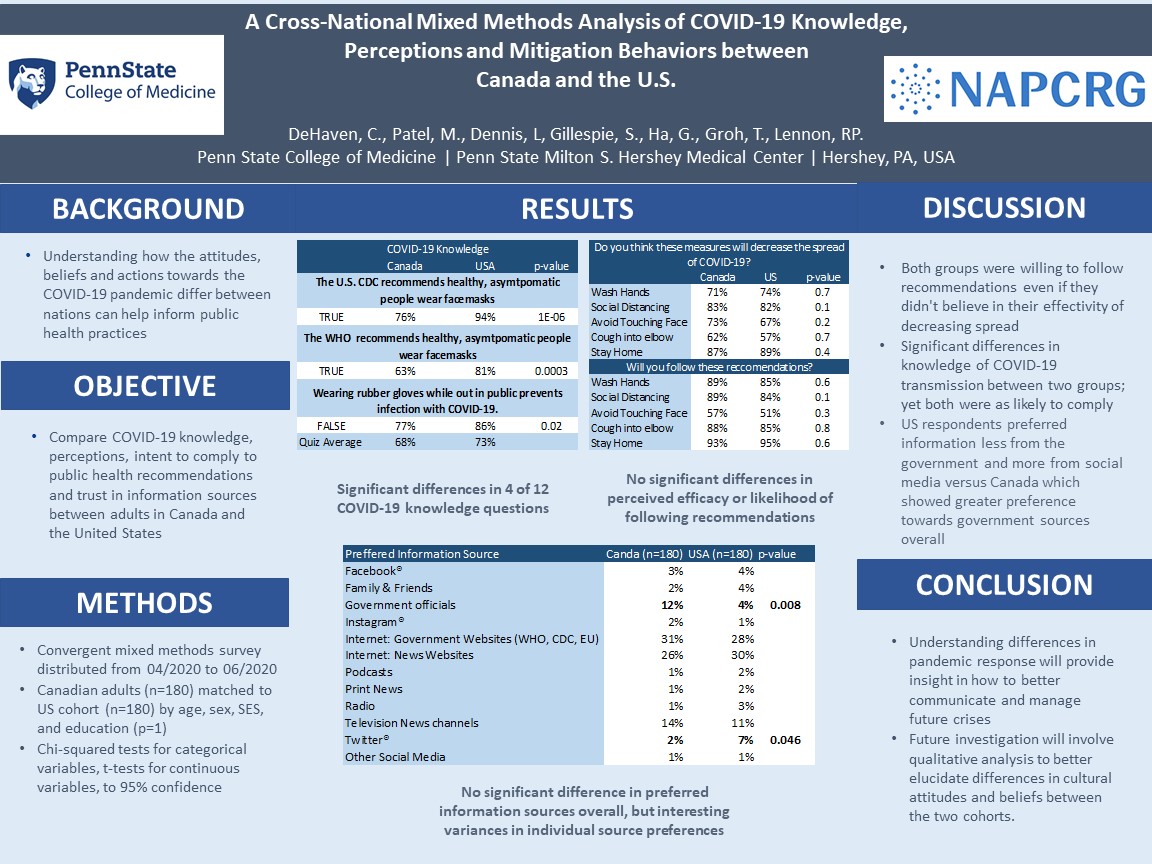PRP005: A cross-national mixed methods analysis of COVID-19 knowledge, perceptions and mitigation behaviors between Canada and the US
Christopher DeHaven, BS; Megha Patel, BSc, MSc; Lauren Dennis, BS; Robert Lennon, MD, FAAFP, JD, JD; Timothy Groh; Sarah Gillespie, BA
Abstract
Context: The public’s perception of the COVID-19 pandemic, or any biological hazard, plays a significant role in determining their attitudes, beliefs, and actions toward the disease. This project examines cross-cultural differences that affect public knowledge and perceptions of COVID-19. Understanding these factors will help better inform the public about best health practices. Objective: To compare knowledge of public health recommendations, perceptions, and trust in information sources related to COVID-19 between adults in Canada with a matched cohort in the United States to provide insights into challenges these nations may face in coordinating a pandemic response. Study Design: Convergent design mixed-methods global online survey. Setting: Online survey distributed via social media early in the COVID-19 pandemic. Population Studied:180 adults from Canada and a 1:1 US cohort matched by age, gender, education status, socioeconomic status, and survey completion date (p=>.05 across all variables). Outcome Measures: Quantitative comparison of COVID-19 knowledge score, preferred sources of information, level of trust in information sources and compliance with public health recommendations were made using Chi-squared tests for categorical variables and T-tests for continuous variables. Convergent design thematic assessment was used to explain similarities and differences between the two groups. Conventional content analysis was used to analyze five open-ended, free-text questions using NVivo 12. Two coders for each country will independently generate a qualitative codebook and code all responses to an inter-rater reliability of ≥ 0.70 using the constant comparison method to reconcile discrepancies. Results: The matched cohort is not significantly different from each other across all five requirements. Outcomes to be Reported: Conclusions will be drawn using the quantitative data as primary evidence, and qualitative themes to support. We hypothesize significant differences in responses due to cultural, socioeconomic and public health factors within each country. Understanding differences in public knowledge and intent to comply with public health recommendations will help both nations improve compliance and offer insights into how to improve future global messaging.

Jack Westfall
jwestfall@aafp.org 11/21/2021Terrific project. Great poster and abstract. Thanks for sharing at NAPCRG